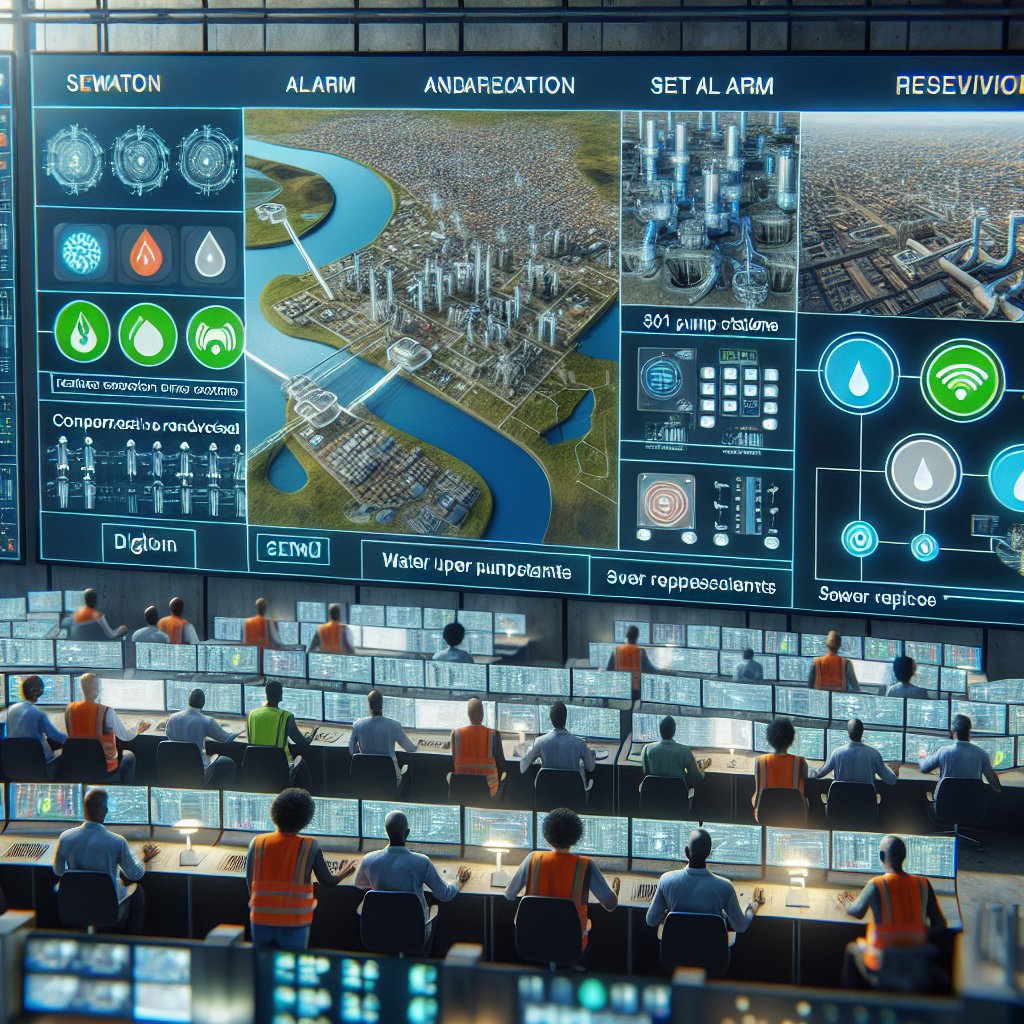Image created by AI
Cape Town Employs Advanced Digital Monitoring to Enhance Water Infrastructure
In an innovative move to maintain its water and sanitation systems, the City of Cape Town has heavily invested in a cutting-edge digital monitoring system. This technological advancement allows for the real-time surveillance of vital infrastructure, significantly enhancing the city's ability to respond swiftly to any potential issues within its sprawling network. With a R7.4 million allocation, the new system is set to revolutionize the management of the city's utility services.
The dynamic new pump station control room at the heart of the initiative enables the precise tracking of 401 sewer pump stations, 58 water pump stations, and 60 reservoirs. Through the power of telemetry, an advanced alarm system communicates instantaneously with the control room, providing real-time warnings and enabling the staff to monitor infrastructure conditions with remarkable accuracy. The system's sophistication extends to its ability to dispatch immediate, direct SMS alerts to response teams for any incidents that emerge after hours.
Mayor Geordin Hill-Lewis has lauded the system's efficacy, notably highlighting its potential to expedite response times for vital repairs and maintenance. With the city already observing a substantial 50% reduction in false alarms, which often divert resources unnecessarily, this digital solution promises to optimize the utility’s operational efficiency.
The digital control room is involved in a wider initiative meant to reduce the frequency and impact of sewer spills within the city. To complement the digital system's capabilities, Cape Town is doubling its efforts in replacing and refurbishing its physical water infrastructure. The extensive plan includes increasing sewer pipe replacements to an impressive 100 kilometers per year, with water pipes also seeing replacements doubling to 50 kilometers. Notably, more than 200 kilometers of sewers receive an annual jet-cleaning treatment to minimize blockages that can lead to disruptive overflows.
Simultaneously, the city is undergoing a comprehensive refurbishment of its 12 water treatment plants. Currently operating at approximately 75% of their designed capacity, these facilities are pivotal in managing the 1,600 megaliters of water treated each day. The refurbishment efforts will ensure these plants achieve their full operational capabilities, fortifying the city's water treatment infrastructure against challenges.
This strategic investment in both digital and physical water management systems not only signifies Cape Town's commitment to sustaining its infrastructure but also illustrates a forward-thinking approach to urban utility governance. With the digital eye of the city assuring that any disturbance in the delicate balance of essential services is instantly noted and addressed, Cape Town is solidifying its reputation as a city attuned to the importance of sustainable and efficient water management.










